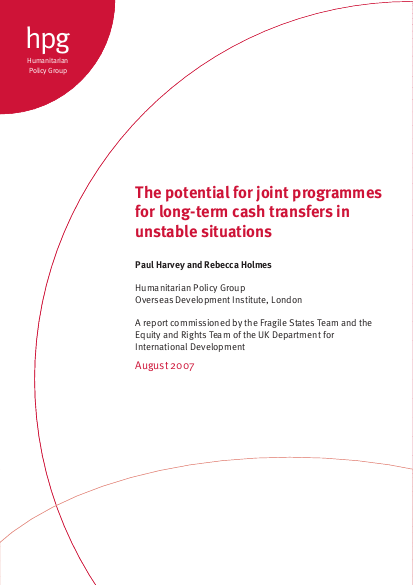
This paper examines the potential for jointly funded long-term cash transfers to form part of social protection in unstable situations. It argues that there are three essential challenges: • Financing – how to provide longer term, more harmonised and predictable funding for social transfers in unstable situations; • Actors and delivery capacity – which actors or combinations of actors could deliver social transfers at scale (governments, NGOs, UN agencies, or the private sector); • Mechanisms – the form a social transfer should take (food or cash). Social protection is increasingly recognised as an essential basic service for the poor alongside health, education and water. That social protection can be provided in fragile states remains less well understood than it is in more stable contexts (DFID, 2006). There are two approaches to this problem that have shown considerable potential: social transfers in the form of cash and joint programmes. Cash transfers are becoming more common in emergency situations and are increasingly regarded as a key part of social protection strategies. Emerging evidence suggests that they can help to tackle hunger, increase incomes, improve the educational attainment and health of the poorest families and contribute to growth (DFID, 2005; Harvey, 2005). In a number of fragile states, delivery structures are being developed that combine different actors, be they state, UN, NGO, or donor actors, into a relatively tight programme structure. Joint programmes typically involve a single approach, some kind of management or oversight agent, and basket funding in order to ensure harmonisation.
